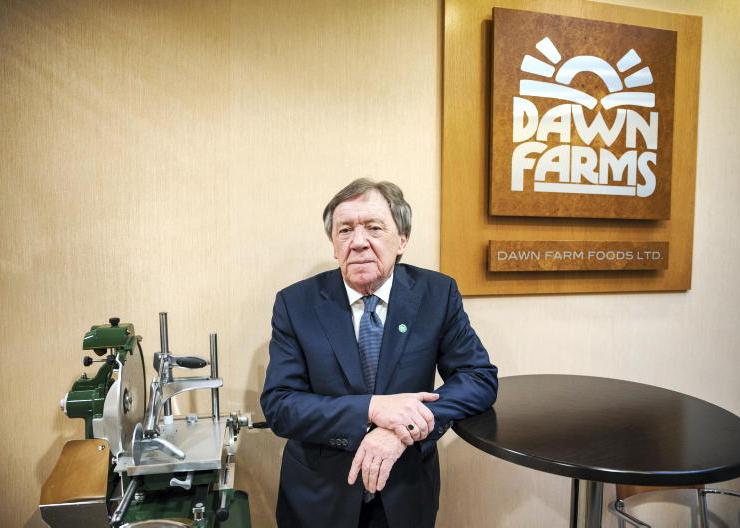A long time ago I donned a gown and graduated from O’Reilly Hall in UCD. When my name was called out, I walked up and collected the scroll. Afterwards my mam and my best friend went out for lunch. It was functional. Last week I graduated from Trinity College Dublin and it was a very different experience, steeped in tradition.
The importance of these traditions – all 300 years of them – were spelled out to us pointedly in English by Professor Neville Cox, the college registrar, before the Latin ceremony. As well as the language, there is the front square procession and a strict black and white dress code. Now, while I think that tradition is important and should be respected, I also think that change is necessary where a tradition no longer serves the best interests of people.
Another Trinity tradition saw graduands (those about to graduate) presented with their parchment in descending order of academic achievement, starting with those attaining a 1.1 to those with pass grades. This was leading to stress among some students and therefore the college decided to act. In September, we (students) received an e-mail from the college informing us the college board approved the decision for students to be called for their degree based on alphabetical order rather than by degree classification. A tradition change that was broadly welcomed.
The difference between a habit and a tradition is that the former is an action done on a regular basis while the latter is passed from person to person or generation to generation. The food we eat can fall into either category. Traditionally, we have turkey and ham for Christmas dinner – other families may have goose or beef. We have never deviated as both meats have remained available and it is a habit we enjoy. I cook the ham, my mother the turkey. However, if bird flu badly affects turkey availability in 2022, an unwelcome aberration could occur.
Specifically in relation to beef, I spoke to Claire Donoghue about how our traditional eating patterns are changing. When I was young we habitually had a Sunday roast – usually beef. This was a sensible Sunday solution for larger families. But as Claire notes, this tradition and habit is gone now, with more convenient meals for smaller families replacing the roast. A change in product mix does not mean the end of traditional dining, but a change in consumer habits needs to be respected for the sector to continue to meet market demand. Janine in consumer this week reports on post-pandemic dining patterns and how our eating out habits are changing.
Farewell to Damien
Most every other day, I will put the lead on my overexcited dog and we will walk our familiar loop around the local woods, a habit cemented during COVID-19. On a Saturday afternoon, another element is added. On that walk I will listen to Countrywide or to “Damien” as his show is [was] often described. I thought about how habitual this had become as I listened to his final show last weekend and how much I will miss it. I share, as I am sure many readers of his column do (also the final one this week P36), the sentiments of his two final panellists, Mairead McGuiness and Tom Arnold, who congratulated him on his dedication to Irish agriculture. A column on the back page of Irish Country Living is a tradition I intend to continue – canvassing does not disqualify!
Read more
Editorial: A cohort of women spanning 60 years
Connecting the generations through shared experiences
A long time ago I donned a gown and graduated from O’Reilly Hall in UCD. When my name was called out, I walked up and collected the scroll. Afterwards my mam and my best friend went out for lunch. It was functional. Last week I graduated from Trinity College Dublin and it was a very different experience, steeped in tradition.
The importance of these traditions – all 300 years of them – were spelled out to us pointedly in English by Professor Neville Cox, the college registrar, before the Latin ceremony. As well as the language, there is the front square procession and a strict black and white dress code. Now, while I think that tradition is important and should be respected, I also think that change is necessary where a tradition no longer serves the best interests of people.
Another Trinity tradition saw graduands (those about to graduate) presented with their parchment in descending order of academic achievement, starting with those attaining a 1.1 to those with pass grades. This was leading to stress among some students and therefore the college decided to act. In September, we (students) received an e-mail from the college informing us the college board approved the decision for students to be called for their degree based on alphabetical order rather than by degree classification. A tradition change that was broadly welcomed.
The difference between a habit and a tradition is that the former is an action done on a regular basis while the latter is passed from person to person or generation to generation. The food we eat can fall into either category. Traditionally, we have turkey and ham for Christmas dinner – other families may have goose or beef. We have never deviated as both meats have remained available and it is a habit we enjoy. I cook the ham, my mother the turkey. However, if bird flu badly affects turkey availability in 2022, an unwelcome aberration could occur.
Specifically in relation to beef, I spoke to Claire Donoghue about how our traditional eating patterns are changing. When I was young we habitually had a Sunday roast – usually beef. This was a sensible Sunday solution for larger families. But as Claire notes, this tradition and habit is gone now, with more convenient meals for smaller families replacing the roast. A change in product mix does not mean the end of traditional dining, but a change in consumer habits needs to be respected for the sector to continue to meet market demand. Janine in consumer this week reports on post-pandemic dining patterns and how our eating out habits are changing.
Farewell to Damien
Most every other day, I will put the lead on my overexcited dog and we will walk our familiar loop around the local woods, a habit cemented during COVID-19. On a Saturday afternoon, another element is added. On that walk I will listen to Countrywide or to “Damien” as his show is [was] often described. I thought about how habitual this had become as I listened to his final show last weekend and how much I will miss it. I share, as I am sure many readers of his column do (also the final one this week P36), the sentiments of his two final panellists, Mairead McGuiness and Tom Arnold, who congratulated him on his dedication to Irish agriculture. A column on the back page of Irish Country Living is a tradition I intend to continue – canvassing does not disqualify!
Read more
Editorial: A cohort of women spanning 60 years
Connecting the generations through shared experiences








SHARING OPTIONS